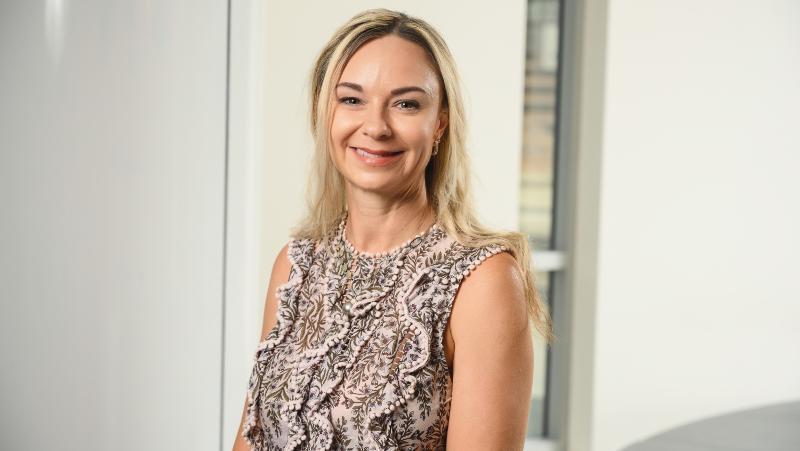Placement poverty among social work students
Angie White
12 April 2024, 9:20 PM
 Social Welfare Student Tayler McBrien
Social Welfare Student Tayler McBrien"Placement poverty" is a reality for those studying social work and creates unnecessary hardships for families trying to provide for them.
Students, academics and union representatives are pressing for an end to unpaid placements for social work students in the wake of the 'Per Capita Report' commissioned by the Australian Council of Heads of Social Work (ACHSWE).
The new research has provided a model the federal government could adopt in the shape of a government-funded stipend that social work students would receive from the employer-host at the minimum wage.
The current requirement for social workers is 1,000 hours of unpaid placements - equating to six months full-time work with no pay.
It creates a significant barrier to meeting the rapidly increasing demand for caseworkers, youth workers and other social work professionals, especially in rural areas where placements are likely to be hundreds of kilometres from home.
The discussion came about following the Australian Universities Accord recommendations that the federal government work with universities, unions and stakeholders to implement financial support to students undertaking placement.
Nyngan Social Welfare graduate Tayler McBrien struggled with getting through the many hours of unpaid placement required for the course and found it a real burden for her and her family.
“Unpaid university placement was a very stressful time for me,” said Miss McBrien.“It meant giving up the life I had made in my uni town and moving back in with my family in a rural area.
“For another placement I had to relocate again to find an appropriate organisation match which meant paying bond and moving furniture etc.
“I worked nights and weekends at a paid job while completing placements throughout the day and had very little time to complete school work and reflect on placement.
“Given the heavy and impactful nature of social work, it was a really hard time trying to balance paid work, placement and the stress of moving,” said Tayler.
The research begs the question why just social work students? with students from many other faculties required to do long and unpaid for placement, placing financial and emotional strain on students who are already under the pump with study.
Despite the fact it is a widespread issue throughout university students, it was deemed of higher importance for social work students who have less access to scholarships and incentives compared to other courses currently running.
“There’s mounting pressure on the federal government to provide an appropriate policy response to unpaid student placements, especially for the social work education sector,” said Per Capita executive director Emma Dawson.
“Our research recommends a government-funded stipend paid to the employer-host because it is the most equitable and inclusive of the examined models. This option is also the most effective and legislatively simple model.
“Regardless of the federal government’s decision, the payment must be the Commonwealth’s responsibility, inclusive of all students and equivalent to the minimum wage.”

“Placement poverty among social work students is rife and must end. The very students who are dedicated to helping society’s most vulnerable are facing disadvantage and financial hardship themselves as a result of unpaid work placements,” according to ASU NSW & ACT secretary Angus McFarland.
"Students can’t afford to complete an already expensive degree and forgo their paid job for months. Unpaid placements are an issue of poverty, equity and gender equality - most social work students are women, and many are mature aged and have caring responsibilities.
“One in five social work students are withdrawing from study due to financial stress.
"In a sector riddled with workforce shortages, unpaid work placements risk the loss of future staff in vital services including family violence, homelessness, and disability. We need the federal government to seriously consider the options presented to them and act swiftly on the best solution for social work students - our future community heroes.”

Professor Christine Morley. IMAGE: QUT
According to ACHSWE representative Professor Christine Morley unpaid placements have huge consequences for students and the future of tertiary education.
“Social work students experience a significant reduction in income resulting in a real poverty trap with some struggling to afford rent and basic necessities,” said Professor Morley.
"It’s resulting in students delaying taking placements and dropping out of their courses altogether. Social work degrees have high rates of students from diverse backgrounds yet unpaid placements are becoming a barrier for these students to complete their degrees.
“To improve inclusivity and access to higher education, social work placements must be paid. The Accord recommendations must be implemented in a way that promotes greater access to our higher education system for all students.”



